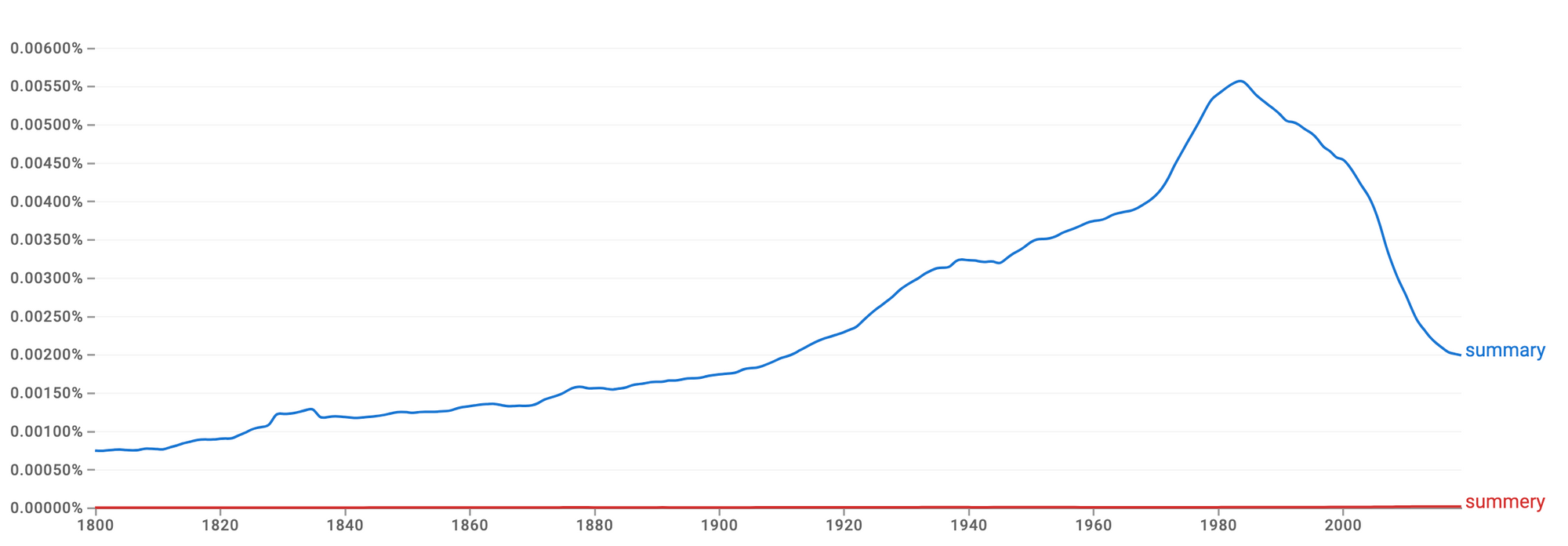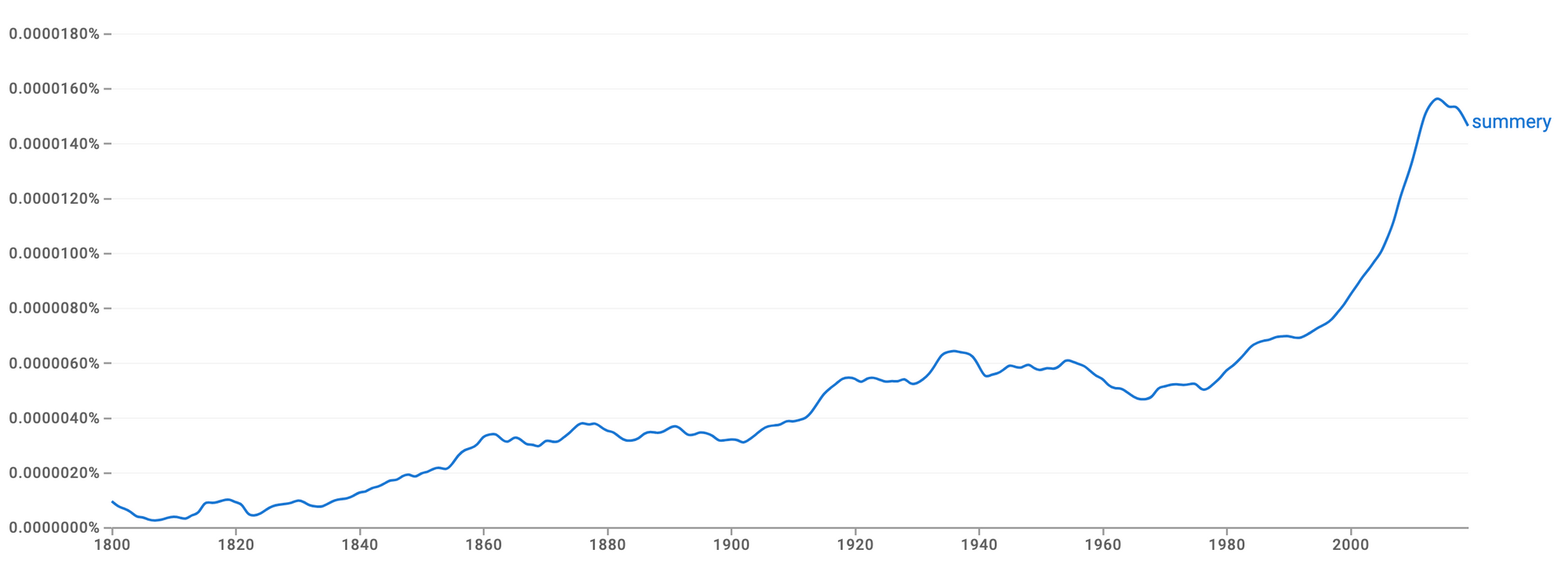- "Summary" refers to a concise and comprehensive overview of the main points or key elements of a text, event, or information, usually presented in a condensed form.
- "Summery" is an adjective describing something that is characteristic of, or suitable for, the summer season, often associated with warmth, lightness, and brightness.
☀️ The room was decorated in a summery style, with light colors, floral patterns, and an overall atmosphere that evoked the feeling of a warm summer day.
When to use summary or summery
The words "summary" and "summery" have different meanings and uses, so choosing the right one depends on the context. Here's a breakdown:
"Summary":
- Use "summary" when you are referring to a brief and condensed overview of a larger piece of information, such as a text, report, or event.
- A summary is used to capture the essential points without delving into all the details.
"Summery":
- Use "summery" when describing things that are characteristic of or suitable for the summer season.
- Summery is an adjective used to convey a sense of warmth, lightness, and brightness, often associated with the characteristics of summer.
Here's a helpful trick to remember
- Summary: Giving summaries is an important part of many classes. Think of the "a" in summary as getting an "A" on your summary assignment.
- Summery: Think of the "e" in summery like an "elephant" who likes the summer season!
Another helpful trick would be associating the extra "e" in "summery" with the "extra" warmth of summer. Whether you're summarizing a report or describing a summery outfit, choose the right word to ensure clarity and precision in your language.
Example sentences
Summary
- The executive provided a detailed summary of the quarterly financial report during the meeting.
- Can you give me a quick summary of the key points discussed in the lecture?
- The news anchor delivered a concise summary of the day's top stories.
- Before diving into the details, let's start with a brief summary of the project's objectives.
- The professor asked the students to write a summary of the research article as part of their assignment.
Summery
- The beach house was decorated in a summery theme, with seashells and light, beach-inspired colors.
- Her outfit was bright and summery, with a floral dress and sandals.
- The resort's pool area had a summery atmosphere, with sun loungers and colorful umbrellas.
- The menu featured a summery salad with fresh greens, fruits, and a citrus vinaigrette.
- The painting captured a summery scene with children playing in a sunlit meadow.
Examples from the web
Summary
"An official summary of the meeting" - The New York Times
"The summary outline" - The Guardian
Summery
"An easy, summery tomato pasta" - The New York Times
"Summery, Soapy New Drama" - The New York Times

Usage of summary or summary
The Ngram graph below shows how often "summary" and "summery" have been used from the 1800s to the 2000s. On this scale, it appears that "summary" has seen lots of use throughout the years, including a peak in the 1980s, while "summery" has not seen as much use.

In this second graph analyzing "summery" on its own, we can see that "summery" has seen a lot of use as well. In particular, it has become much more popular in the 2000s.

Common Phrases and Idioms
Using "Summary":
- In summary: Used to introduce a concise reiteration of the main points.
- Executive summary: A condensed version of a comprehensive business report.
- Summary judgment: A legal term referring to a judgment made without a full trial.
Using "Summery":
- A summery day: Refers to a warm and bright day typical of the summer season.
- Summery wardrobe: Describes clothing suitable for warm weather, often with light fabrics.
- Summery vibes: Conveys the overall feeling or atmosphere associated with summer.
FAQ
Is it summary or summery?
Summary is a noun referring to a concise version of a text or event, while summery is an adjective describing things related to summer. The two words share similar pronunciation, but mean very different things.
Can you spell summary with an E?
If you are referring to the summary of a book or text, you should spell summary with an "a". "Summery" with an "e" is an adjective with a completely different meaning; of or related to summer.
Summary
So, there you have it! A "summary" is a brief overview of a larger piece of information; you could have a summary of a book or article. "Summery", on the other hand, is an adjective relating to summer – think of a summery outfit, summery food, or summery colors!

Want to sound like a native speaker?
Engram’s AI-powered grammar checker makes your English sound like a native speaker’s, suggesting natural English expressions on top of fixing grammar, spelling, punctuation, word order, and vocabulary.

References:















